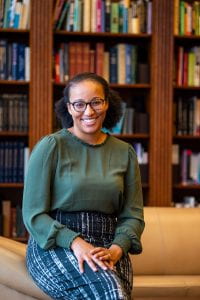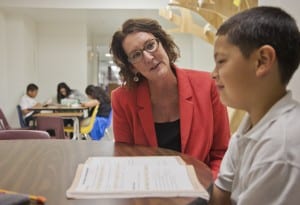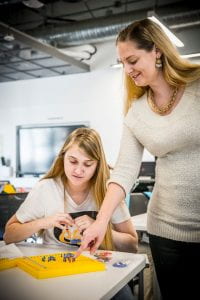 Assistant Professor of Higher Education Denisa Gándara and Amy Li at Florida International University conducted a study of 33 U.S. public community college promise programs, or free-college programs, and found that they are associated with large enrollment increases of first-time, full-time students—with the biggest boost in enrollment among Black, Hispanic, and female students.
Assistant Professor of Higher Education Denisa Gándara and Amy Li at Florida International University conducted a study of 33 U.S. public community college promise programs, or free-college programs, and found that they are associated with large enrollment increases of first-time, full-time students—with the biggest boost in enrollment among Black, Hispanic, and female students.
The results come as the economic impact of the Covid-19 pandemic is leading states to tighten higher education budgets, as low-income students are forgoing their post secondary plans at higher rates this fall than their wealthier peers, and as community colleges are experiencing larger enrollment declines than four-year universities. The study was published in Educational Evaluation and Policy Analysis, a peer-reviewed journal of the American Educational Research Association.
The research is the first on this topic to examine the effects of multiple promise programs on enrollment at community colleges across the country. For their study, the authors analyzed data from the U.S. Department of Education’s Integrated Postsecondary Education Data System, for academic years 2000–01 to 2014–15, to examine the impact of 33 promise programs at 32 community colleges.
Gándara and Li found that, on average, overall enrollments at the community colleges with promise programs increased 23 percent more than at the seven geographically nearest public community colleges without promise programs. Compared to the nearest seven community colleges, promise colleges experienced a 47 percent greater enrollment increase of Black males, a 51 percent greater enrollment of Black females, a 40 percent greater enrollment of Hispanic males, and a 52 percent greater enrollment of Hispanic females. The only groups that did not, on average, experience an enrollment boost associated with promise programs were Asian, Native Hawaiian, and Pacific Islander (API) males and females.
“Prior to the pandemic, promise programs were an increasingly popular mechanism for enhancing college entry and postsecondary attainment,” Gándara said. “Our study offers compelling evidence, and reinforces evidence from prior research, of the benefits of such programs in achieving college enrollment goals.”






